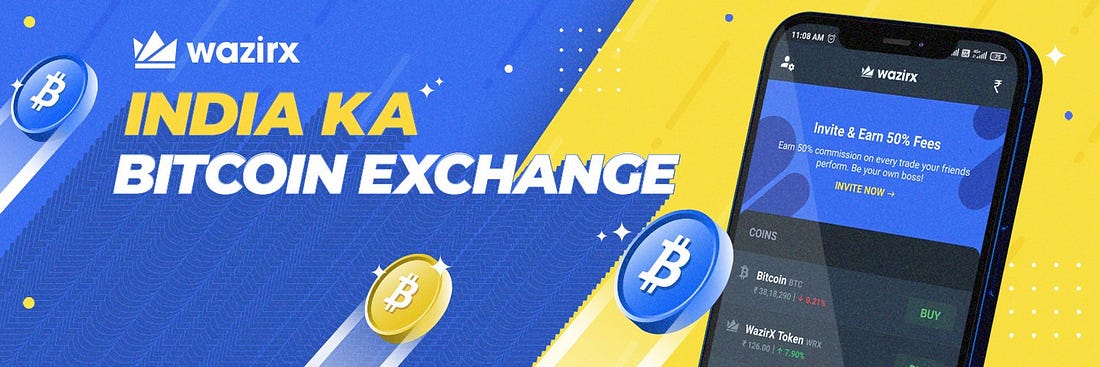In most countries there exist laws that forbid monopolies. But there are things that government likes to monopolise. One of the things that it loves to monopolise is the issue of currency.
A currency is a store of value, that is provided legitimacy by an authority. In most cases the government.
Cryptocurrency is a decentralised currency that has no issuing authority, nor does it have an underlying basis for its value. Nobody is ascribing it value except for what the market assumes.
Most importantly, they are cutting in on the government’s monopoly.
Gold was used as currency for a very long time. In fact, when paper-based currencies were first introduced, they were promised to provide an equivalent amount in gold. Then America decided to go fiat. A fiat currency does not have any underlying basis, its value is solely derived from the issuer. Almost every economy followed suit.
Gold has all of the properties of a currency but you would never find anyone tossing a 10 gm gold biscuit across the counter to buy a laptop. Gold instead is treated as an asset to invest in.
The boiling frog is an apologue describing a frog being slowly boiled alive. The premise is that if a frog is put suddenly into boiling water, it will jump out, but if the frog is put in tepid water which is then brought to a boil slowly, it will not perceive the danger and will be cooked to death. The story is often used as a metaphor for the inability or unwillingness of people to react to or be aware of sinister threats that arise gradually rather than suddenly.
Source: Wikipedia
Most governments did not even take notice of cryptocurrencies when they came into circulation more than a decade ago. It was too technical, hard to understand and even harder to own. But just like the proverbial boiling frog, the governments are suddenly faced with an animal that they know not how to tame.
The government has two policy levers using which it controls the economy.
The Fiscal Policy refers to the use of government spending as well as tax policies to influence economic conditions. Direct investment towards certain sectors and subsidise certain areas to encourage adoption/investment.
The other is the monetary policy which the government does not directly control. It is set by the central bank by controlling the issue and circulation of money as well as the interest rates prevalent in the banking system.
Cryptocurrency upends both.
If transactions are to be undertaken with cryptocurrency, the government no longer has visibility of the transactions because crypto is blessed with anonymity. This really disrupts tax policy.
The central bank has no means to stimulate or dampen demand when transactions are taking place outside of the banking system and interest rates are market-determined and not policy determined.
Cryptocurrency, therefore, is a nightmare for most governments. Further, banning it outright is only going to result in rampant black markets emerging and it would become impossible to control and to know.
Cryptocurrency has become like an unwanted relative living at home. Can’t get rid of them but neither do you want to keep them.
With that let me welcome you to the flip-flop regulation of the Indian crypto market.
The parliamentary panel yesterday (Nov. 15) met representatives of crypto exchanges, Blockchain and Crypto Assets Council (BACC), among others, for a deeper understanding of the issues involved and the business. This was the first such meeting.
While they agreed that a regulatory mechanism was necessary, none of the stakeholders could decide who must take the onus of regulating the swelling cryptocurrency ecosystem in India.
[…]
The law was earlier intended to “prohibit all private cryptocurrencies in India.” But certain exceptions will be permitted to promote the underlying technology of cryptocurrency—and its uses—according to the Lok Sabha bulletin (pdf) released in January.
Meanwhile, the burgeoning popularity of virtual tokens in India has caught the fancy of urban Indians, as well as millennials in tier-2 and -3 cities. At yesterday’s meeting, experts said cryptocurrencies were some “sort of investors’ democracy.”
Source: Quartz
The government is unsure. It does not even want to call cryptocurrency, currency. Calling it currency gives it an aura of legitimacy and therefore would cut in on the monetary policy side. So the government wants to refer to it as a crypto asset. Akin to gold, something you invest in and not use for transacting. Further, taxing and regulating assets or securities trade is a normal activity that the government does.
The question that arises is who will regulate and how will it be taxed?
There have been proposals to have SEBI handle the trading of crypto ‘assets’. But then SEBI deals with securities such as shares, and crypto is nothing like shares. Then should RBI do it?
Every day there is a new leak and every other day it is countered.
There is one thing that is happening for certain – policy paralysis.
Prime Minister Narendra Modi will take a final decision on the regulatory framework for cryptocurrencies amid conflicting views among stakeholders, two persons familiar with the development said. A high-level meeting was held on Thursday to consider all the options as also stakeholder views including the concerns voiced by the Reserve Bank of India.
The options include a complete ban on private cryptocurrencies, a partial ban, allowing all categories of crypto products with regulation, or just a select few with regulation, one of the persons said.
Source: Economic Times
How could you have a policy on the table and everything from a complete ban to regulated usage still be in consideration? There seems to be no direction whatsoever.
In the meantime, well-funded crypto startups are running ads all over television and newspaper to grow as fast as possible. They all seem to be prescribing to the thinking – once you become too big to fail, they will be forced to regulate you.

Source: Twitter

Source: Twitter
Let us see how long the indecision lasts at the centre.

Leave a Reply